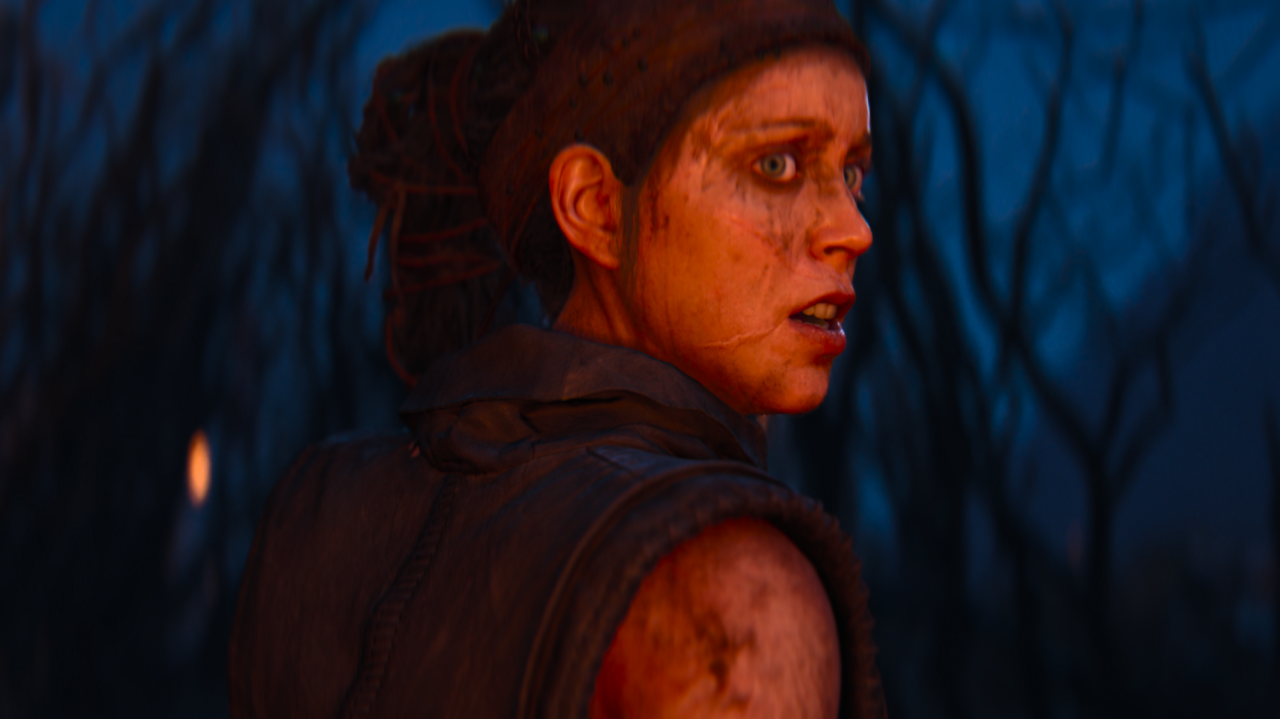Senua’s Saga: Hellblade II sees its titular protagonist in a very different headspace compared to the first game, when the Pict warrior was largely at the mercy of the antagonistic, psychosis-induced voices in her head. She’s more confident in herself in Hellblade II and in this new-found agency, she’s able to connect with people again. Ahead of Hellblade II’s May 21 release, I spoke to lead actor and Ninja Theory video editor Melina Juergens, Ninja Theory scriptwriter and performance capture director Lara Derham, and Bernard Wolfe Professor of Health Neuroscience Paul Fletcher (a key collaborator on both Hellblade games) about Senua’s evolving perception of her psychosis and how that will inform her narrative arc.
“At the end of the first game, [Senua] was really confronting a lot of new things, and that’s a very difficult part of the journey,” Derham told me. “I think at the end of the game, she came to a sense of–I wouldn’t say complete peace, but more peace and more acceptance. And she had started to question and put aside her father’s teachings: that this difference that she had that she shares with her mother is evil and wrong.”
She continued: “So I think [Senua is] at a point now where she’s prepared to move forward and look at what comes next. And for her, what comes next is this mission that she feels very strongly that she’s destined to do, that she’s chosen for. And this is to do with the promise that she made to Dillion about not letting anyone suffer as he did. So I think I like to see it as a step out into the world because it’s not just about her and her pain, it’s about other people. And there’s a real selflessness to this decision that she makes, especially since she’s putting herself at such great risk.”
In Hellblade II, Senua travels to Iceland to deal with the Viking threat still entrenched there. Unlike the first game, which saw her contend with the mythical monstrosities of Helheim all on her own, Hellblade II sees Senua fight in a setting based more firmly on reality and interact with other people. And some of these people will see Senua as an aspirational leader, not the cursed outcast from the first game.
“We’ve got a cast now for the new game,” Juergens told me. “There are people that appreciate [Senua’s] perspective, her unique perspective on the world, and there are other people who reject it. I think she comes across a little bit more confident now. When I was acting, I made sure that for the second game, my posture is a little bit more confident and upright because she is a leader in the second game. She’s not a victim of psychosis anymore. She hasn’t overcome it, but she’s in control of it.”

“When we look at Hellblade 1, [Senua] was totally enthralled to and enveloped by this darkness,” Fletcher said. “And as she emerges from that, she acquires more power and self-reliance and is able to challenge and resist the voices and visions even though they’re still there. So she has more power. And that’s what enables her to look outside and to think in terms of the bigger picture beyond herself.
“That’s a really important point that she is [no longer] being constantly buffeted by the voices and buffeted by her experiences,” Derham added. “They still affect her, they’re still there, but she has the ability now to push back on them a little bit and to recognize that she has agency.”
For Ninja Theory, it was important to showcase that living with psychosis is a journey. There’s no ending to Hellblade II where Senua walks away completely “fixed” of her mental illness. “I think some people can think of her trajectory of recovery in very simple terms of leaving the past behind,” Fletcher said. “And I think, echoing what Lara said, [Senua] doesn’t leave her past behind, but the past actually grinds and shapes the lens through which we see the present and predict the future. And that’s there the whole time. In meeting with other people, she gains new perspectives. And for me, that’s really exciting that [Ninja Theory is] taking the narrative this way. Because so often in clinical practice, what allows people to recover is to gain a meaning and a purpose that’s beyond themselves.”
“The place that we’re taking [Hellblade II], which is really new, is instead of examining how different Senua is from other people, we’re looking at how similar some of her experiences are to what we would call ‘normal’ people’s responses,” Derham said. “It goes back to what Paul was saying this morning about how we all construct our own realities in some way or another. And we’ll see Senua’s world through Senua’s eyes but you will also see how other people, [people without psychosis] are also doing the same kinds of processes that Senua is–creatively constructing her world, [is something] that other people do as well.”
Senua’s Saga: Hellblade II is set to launch for Xbox Series X|S and PC, and will release day one on Xbox Game Pass.





















+ There are no comments
Add yours